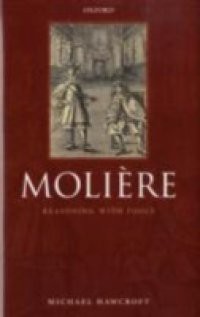Molière wrote, directed, and starred in comedies for public and court audiences in seventeenth-century France. He is perennially successful, but perennially subject to critical controversy: do his plays aim to do more than make audiences laugh? This book focuses on a group of characters in the plays, the interpretation of whose role lies at the heart of any answer to this question. For over a century critics have baptised them 'raisonneurs'. They arecharacters who engage with some of Molière's most foolish protagonists, but they have been variously interpreted as exponents of wisdom or as ridiculous bores. This book argues that new light can be shed on the words and actions of these characters, and so on the tenor of the plays as a whole, by detailed contextualanalysis of the dramaturgical and comic structures in which they operate. They have never before been treated so exhaustively. They emerge neither as the mouthpieces of common sense nor as pompous fools, but as thoughtful, witty, and resourceful friends of the foolish protagonists whom Molière himself played. The book takes into account what is known of the performance styles of Molière's troupe of actors as well as engaging closely with the text of the plays and the criticaldebate to date. Some of Molière's most teasingly problematic plays are held up to fresh scrutiny, including L'Ecole des femmes, Le Tartuffe, Le Misanthrope, and Le Malade imaginaire. The book is written with scholars, students, and interested theatre-goers in mind. This is the first book-length treatment of thetopic.

